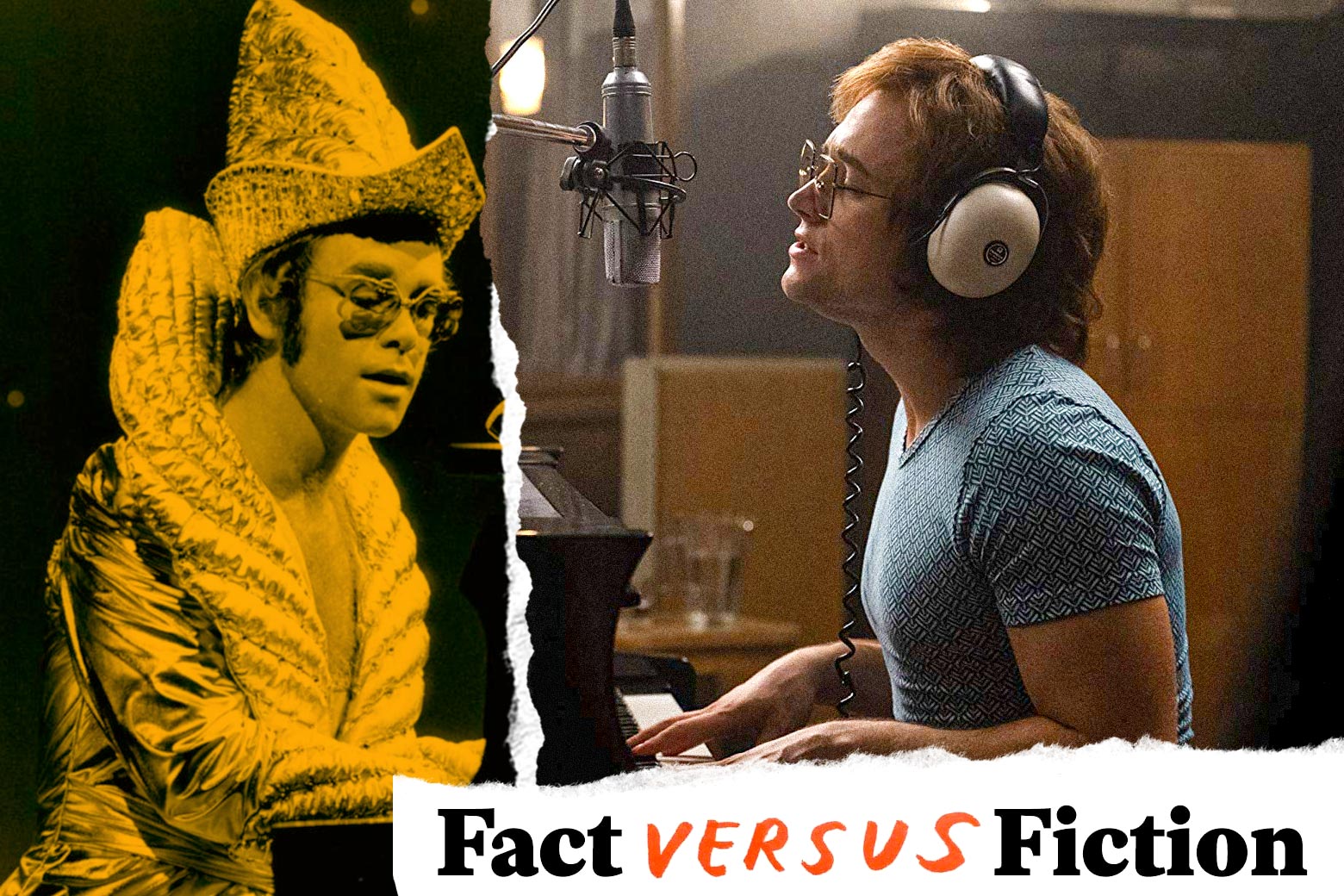You wait years for a biopic about a flamboyant, world-beating glam rock star who starts out as a shy English boy before living a life of wretched excess then straightening up and reconciling with his true friends—and then two come along at once. But despite these superficial similarities (and even the same director, Dexter Fletcher, who filled in on the Freddie Mercury biopic for Bryan Singer), Rocketman, the story of Reginald Dwight’s transformation into superstar Elton John and the eventual reconciliation of these two identities, is quite different from Bohemian Rhapsody.
For one thing, Bohemian Rhapsody is largely a re-creation of live concert or album performances, with the songs very much sticking to the original versions, while Rocketman is much more of an old-school movie musical, with characters bursting into song to express their emotions and dancers suddenly appearing in everyday locations like funfairs or the Santa Monica boardwalk. Rocketman also isn’t afraid to radically reimagine songs and arrangements (the 2001 single “I Want Love,” for example, is sung by young Reg, his mom, father, and grandmother). Finally, unlike the Queen movie, the subject of the biopic is very much alive and able to serve as the film’s executive producer. Does this mean that Rocketman presents a sanitized version of the truth, or is Elton OK with an unvarnished portrait? We break it down.
Little Reg’s Remarkable Musical Ear
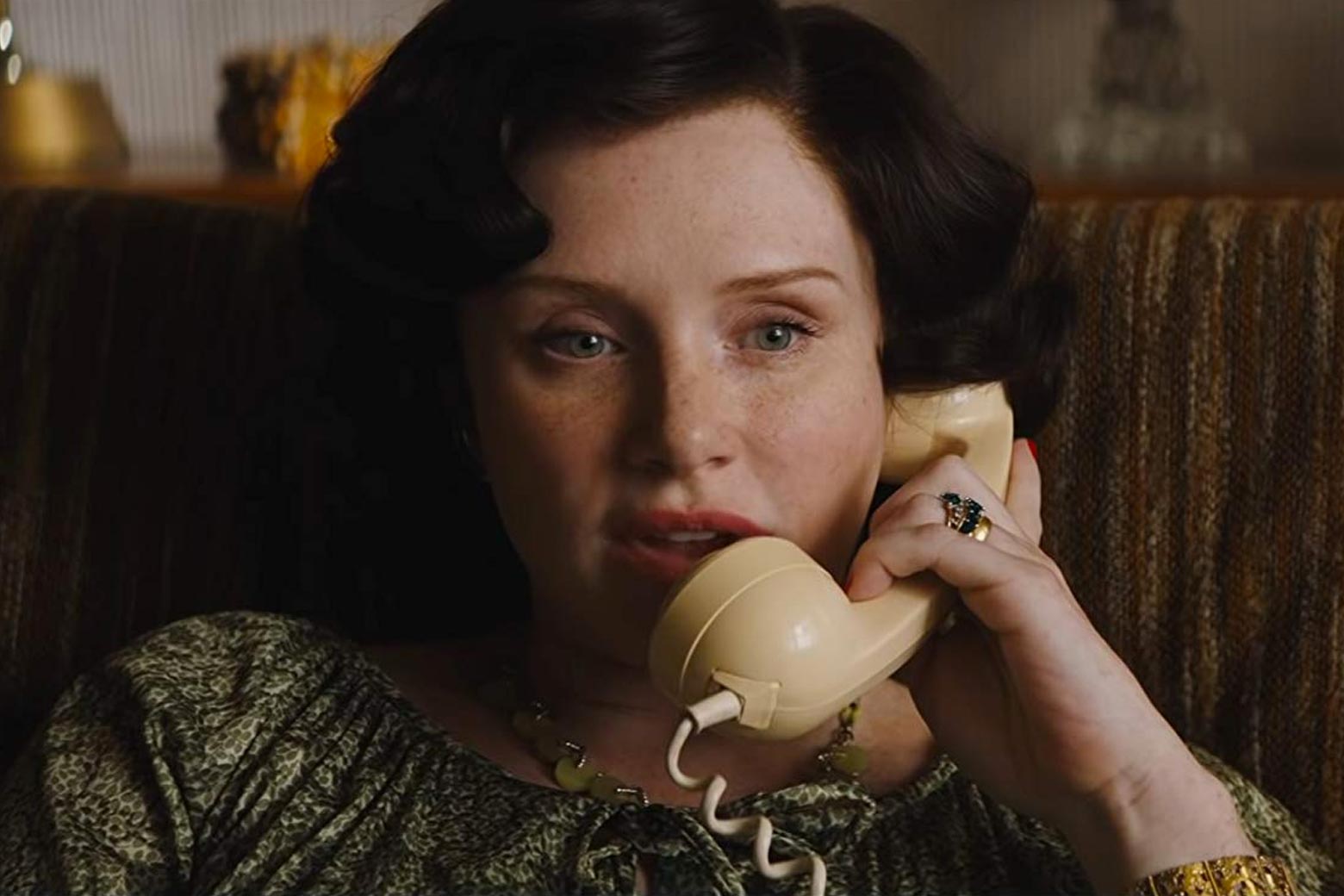
In the film, the first inkling of little Reg Dwight’s talent comes when, as a tot, he picks out a melody on the family piano after hearing it on the radio, impressing his kindly grandmother and his glamorous if self-absorbed mother, who decide piano lessons are a good investment. At the age of 11, he wins a scholarship to Britain’s prestigious Royal Academy of Music. He doesn’t prepare a piece for his audition but instead is admitted after replicating the piece he hears the teacher practicing.
John is known for his remarkable ear. According to a story repeated both on John’s website and in multiple biographies, young Reg shocked his family by sitting down and playing The Skater’s Waltz by ear. Biographer Philip Norman wrote that “Even as a toddler, Reggie Dwight could hear a piece of music just once, then sit at the piano and replicate it note for note.” He did win a scholarship to the Royal Academy of Music, which he attended on Saturdays for four years, and his ability at the academy to reproduce even long and intricate pieces of music after a single listen is backed up by his teacher: “I remember once playing him a prelude by Handel, four pages long,” Helen Piena recalls in Norman’s biography. “As soon as I’d finished, he played it straight back to me just like a gramophone.”
His Relationship With His Father
Elton’s father, Stanley Dwight, is depicted as a cold and distant Royal Air Force veteran, dismissive of his son’s musical talent and sensitive nature, a rejection underlying much of the star’s later problems with self-esteem. The salt is rubbed in the wound when the superstar Elton later visits his estranged father only to find Stanley has a clearly affectionate relationship with his two sons by a second marriage, Elton’s half-brothers.
This certainly matches John’s own account of his childhood. In a 2011 interview with the Sunday Times, John described his father as a “tough, hard, unemotional man” who was “dismissive, disappointed, and finally absent. I just wanted him to acknowledge what I’d done. But he never did.” John felt Stanley’s relationship with his new family exacerbated his feeling of rejection, saying in the same interview, “It wasn’t that he didn’t know how to relate to kids. He left us, remarried and had another family, and by all accounts was a great dad to them. It wasn’t children, it was me.”
However, John’s half-brother Geoff Dwight disputed this characterization of Stanley, telling the Daily Mail, “When I was growing up, Elton was always there and we had a lot of fun on family holidays and things like that.” He also declared that John “always sent birthday and Christmas cards to our dad. He never forgot,” and that Stanley slept with a picture of Elton next to his bed until his death. Similarly, John’s stepmother, Edna, told Norman, “Stanley’s been made out as an overbearing monster. But it’s just not true. He was a lovely man, a good father and a loving husband.” What’s more, she said, far from discouraging his son’s musical talent, Stanley bought him a piano in 1963 (she produced the receipt).
The Origin of Elton John’s Name
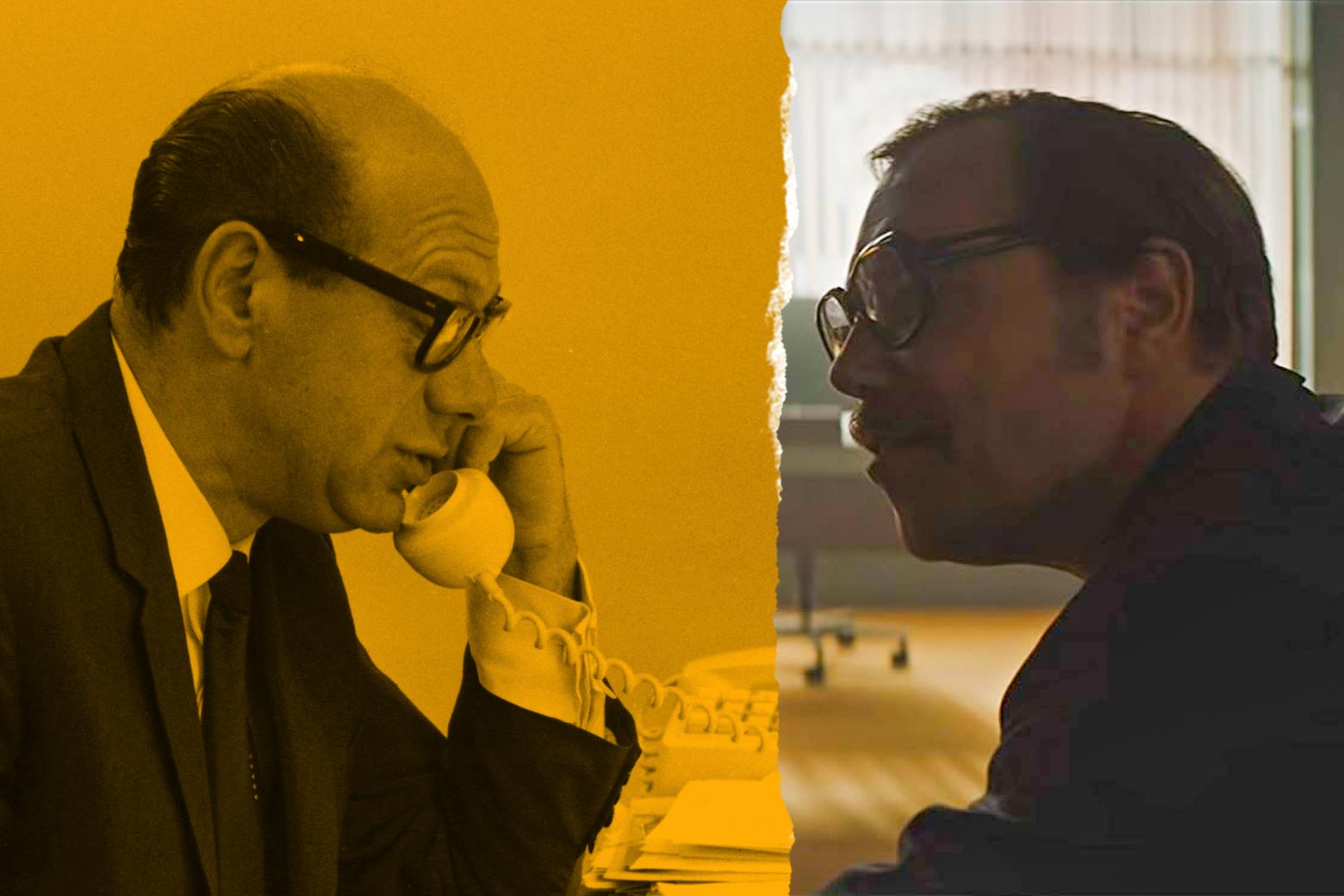
Realizing his heart is in rock ’n’ roll, Reg (Kingsman star Taron Egerton) starts playing with a small band in pubs on Saturday nights. Soon the band is backing up touring U.S. soul acts, leading one of his bandmates to point out Reg needs a name that’s a bit more rock ’n’ roll. Reg responds by borrowing the bandmate’s first name (Elton) but is flummoxed by what to choose as a last name until, asked by music publisher Dick James for his name, he spots a photo of John Lennon on the wall and inspiration strikes.
As early as 1963, an Elvis-besotted John was in a band playing Ray Charles and Jim Reeves covers at a hotel, rather than a pub, near his native Pinner outside of London. Some members of this band reformed as Bluesology in 1964 and by a year later were indeed backing visiting American soul artists like the Isley Brothers and Patti LaBelle and the Bluebelles. Elton did adopt his first name from a Bluesology bandmate, saxophonist Elton Dean (later with rock band Soft Machine). But the John came not from Lennon but from Elton’s early mentor Long John Baldry, whose various blues bands had nurtured some of British rock’s top talents (including Mick Jagger, Charlie Watts, Jack Bruce, Jimmy Page, and Rod Stewart) and who hired Bluesology as his backup band in 1966. John admired Baldry as one of the few people in the music scene who was both openly gay and highly esteemed.
John’s Relationship With Bernie Taupin
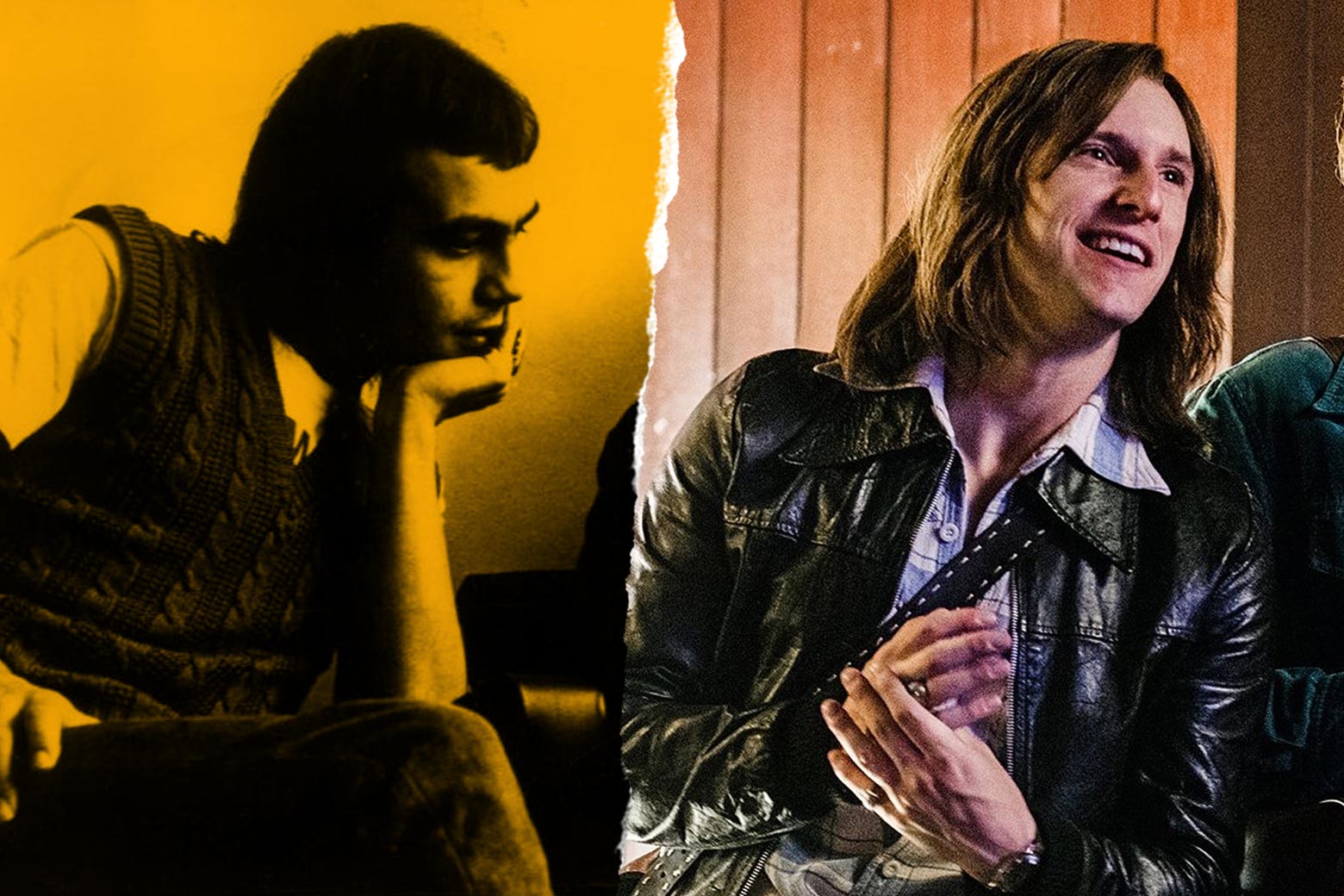
In the movie, Elton is in the office of music publisher and record label boss Dick James (Stephen Graham) in the hope of being signed. James is impressed by the melody Elton composes on the spot, but when he asks about the words, Elton confesses he doesn’t write them, whereupon James hands him sheets of paper covered in handwritten lyrics and tells him to set them to music. Elton meets up with the lyricist, Bernie Taupin (Jamie Bell), in a café, and the two become fast friends, with Elton coming to consider Bernie the brother he never had. The amicability of their relationship may be preserved by their semidetached working method: Bernie hands over or mails the lyrics, and then Elton goes off on his own to come up with a melody within a couple of hours.
This, John told Rolling Stone in 2011, is pretty much what happened, recalling, “I went to Liberty Records while I was still in Bluesology and said, ‘I may be able to sing, I may be able to write, but I can’t write lyrics,’ and a guy hands me a big brown envelope that hadn’t been opened and says, ‘Take these, they’re from some guy in Lancashire.’ ” Furthermore, John added, he and Taupin had “never written a song in the same room.”
The interview also backs up the movie’s assertion that the collaborators rarely argued, with John declaring, “We’ve never had an argument about music, and I don’t think we’ve ever had a personal argument, either,” although the interviewer observes the liner notes for Captain Fantastic and the Brown Dirty Cowboy feature “a January 12th, 1969, diary entry that says, ‘Had row with Bernie.’ ” John also admits that he occasionally will edit down Taupin’s lyrics—for example by cutting an entire verse from “Daniel”—but that Taupin “never questioned it, never complained about it.”
Ironically, this working method undermines Rocketman’s central conceit, i.e., that the songs express John’s state of mind at crucial points in his life. With Taupin writing the lyrics in isolation, they could hardly all be based on John’s experience.
Overnight Success in L.A.
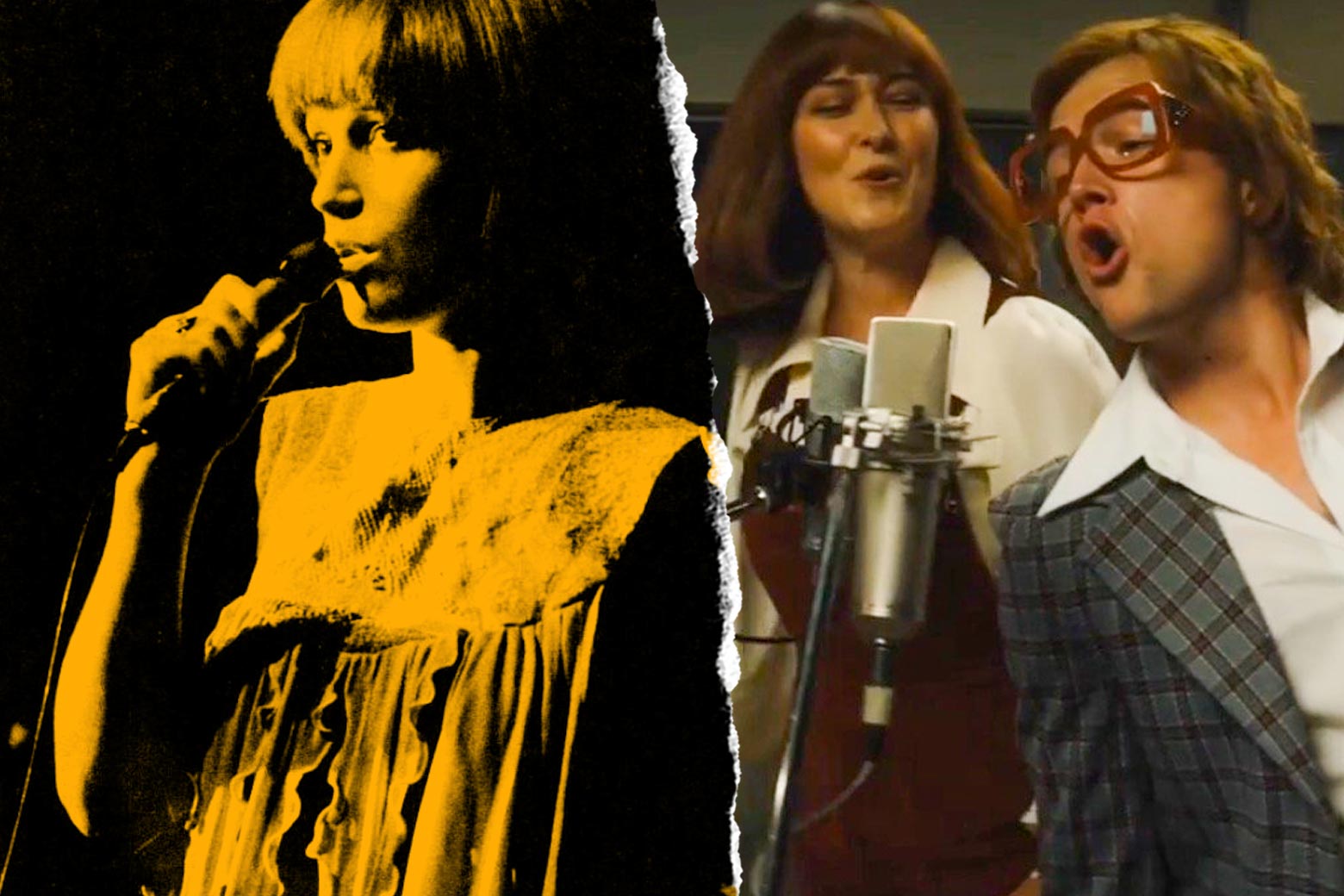
On the strength of the songs the duo comes up with, James signs them to a three-album deal and books them for a six-night gig at the Troubadour, L.A.’s famous musical launching pad. Overcome with nerves on learning idols like the Beach Boys and Leon Russell are in the audience, Elton at first refuses to emerge from the dressing room. But he finally does, allowing the film to rehearse that oldest of showbiz tropes, “you’re going out a youngster, but you’re coming back a star!”
This is exactly what happened. John arrived as a nonentity, but the audience went wild the opening night (Rolling Stone included the shows in a list of the 50 greatest concerts of the rock era), and a rave review in the Los Angeles Times made John and Taupin the talk of the town, catapulting them into the big leagues. Taupin later recalled, “The Troubadour shows were the blue-touch paper for our career.”
Elton John’s Relationships With Women
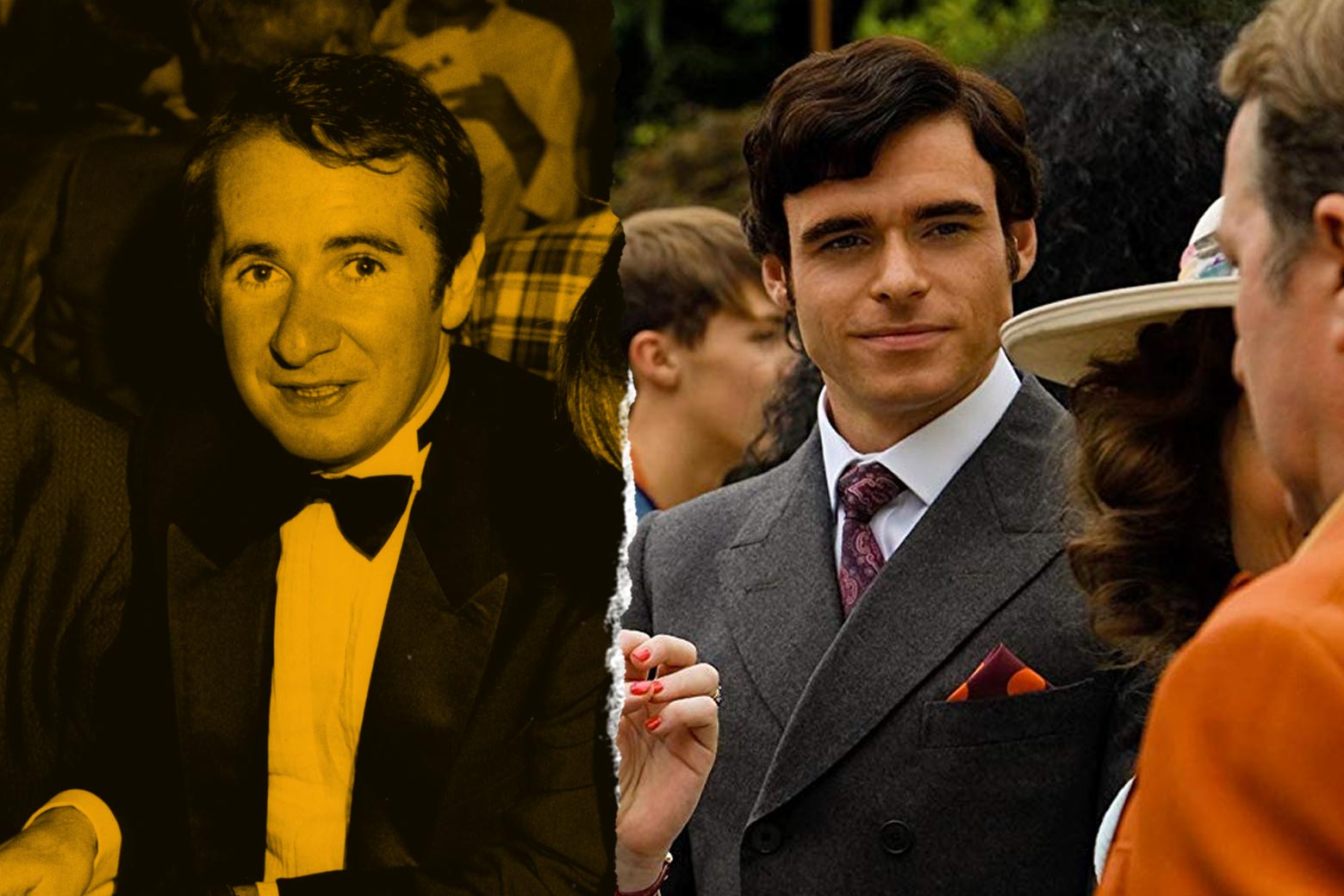
In the movie, the as-yet-undiscovered Elton and Bernie move into a flat, where Elton begins a relationship with his glamorous hippie landlady, Arabella. Needless to say, it doesn’t end well. Then, during his substance abuse years, he meets Renate, a recording engineer who is deeply simpatico. Hoping a nice woman will bring order to his chaotic life, Elton marries her. Again, it doesn’t last. In between, John discovers true passion with darkly handsome John Reid (played by a ridiculously smoldering Richard Madden, aka Robb Stark from Game of Thrones), with whom he develops a sort of Ike-and-Tina relationship, though the abuse is mostly emotional.
In fact, John became engaged to a woman named Linda Woodrow—not a wafty hippie landlady but a down-to-earth secretary—in 1969, after dating for two years. But then, less than a month before the wedding, John called the whole thing off.
Legend has it that faced with the prospect of domestic bliss in the suburbs, John sank into a suicidal depression and it was Baldry who convinced him to end it, reportedly saying, “Oh, my dear, for God’s sake, you’re getting married, and you love Bernie more than you love this girl. This is ridiculous,” thus earning Baldry a tribute as the “Someone” in Taupin and John’s song about the breakup, “Someone Saved My Life Tonight.” (Meanwhile, just as in the movie, John and Taupin’s relationship has always been strictly platonic.)
Still publicly maintaining he was bisexual, John met Renate Blauel, a sound engineer, when she worked on his Too Low for Zero album in 1982. They were married in 1984 (Reid was best man) and, after spending much of the marriage on different continents, divorced in 1988. John attributed his taking the leap to a desire to start a family and because, as he told the Los Angeles Times in 1992, “Even though I knew I was gay, I thought this woman was attractive and that being married would cure me of everything wrong in my life.”
Suicide Attempt
In the movie, with his feelings of inherent unlovability only exacerbated by his enormous wealth and stardom, Elton sinks ever deeper into a morass of drink, drugs, and unsatisfying hedonism. When his mother and grandmother fly over for a big pool party at his L.A. mansion, he spends most of it alone in his room getting wasted. He finally emerges only to hurl himself off the diving board in search of oblivion.
Despite world-beating success (seven U.S. No. 1 albums in a row and being by far the biggest album act of the 1970s), John did descend into a well-publicized spiral of substance abuse and isolation before finding salvation in rehab and therapy. “Walking around the house, not bathing for three or four days, staying up watching pornography all the time, drinking a bottle of scotch a day. And I was bulimic as well, so I wouldn’t eat for three days, then gorge on six bacon sandwiches and a pint of ice cream and throw it up. And then have a shower and start the whole procedure all over again,” he told the Daily Telegraph in 2010.
And he did make a theatrical suicide attempt in front of his mother and grandmother, jumping into his swimming pool screaming, “I’m going to die!” after swallowing 60 Valiums. “It was stress,” he recalled in the same interview. “I’d been working non-stop for five years. But it was typical me. There was no way I was going to kill myself doing that. And, of course, my grandmother came out with the perfect line: ‘I suppose we’ve all got to go home now.’ ”
